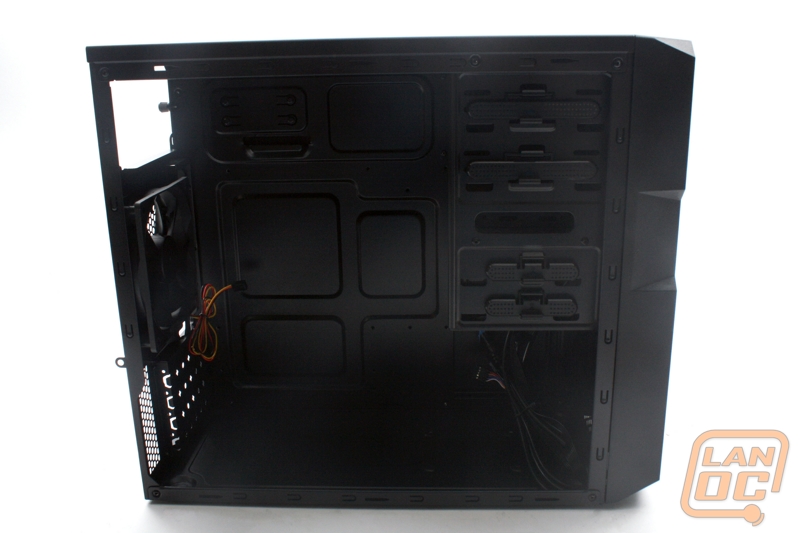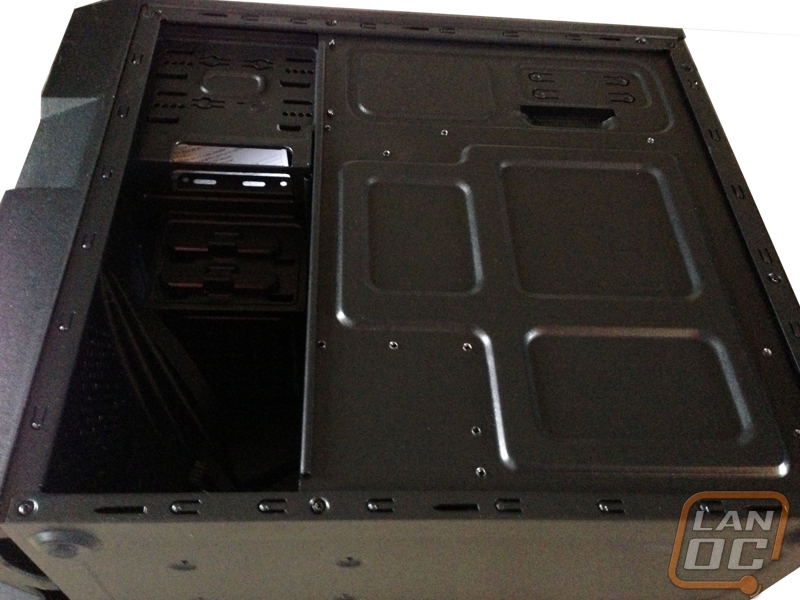Inside
The Spike is marketed as one of Cougar's mini gaming towers, and of course one of the hardware pieces most associated with the gaming crowd the video cards. The GPU market is in no short supply of beefy cards, and the Spike ensures compatibility with high-end dedicated graphics by re-arranging the layout a bit. The power supply is top mounted, which will play into the cooling system discussed later. The immediate effect is this open a unencumbered area for the PCI/e lanes of your motherboard: 330mm to be exact. Take the HD6990/7990 as examples, both coming in at about 12", or just above 300mm.
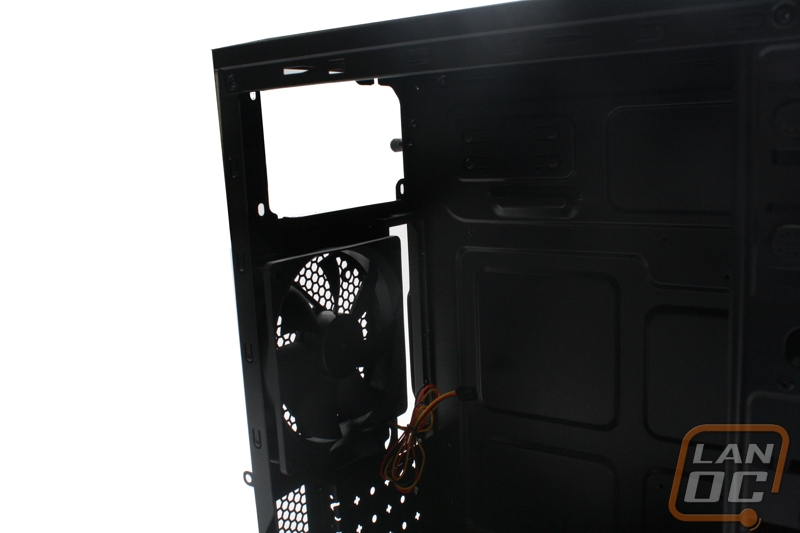
Since your video card won't be laying flush on the bottom of cases, Cougar capitlizes on the floor real estate with a 2.5" drive mounting area, perfect for an SSD. The traditional drive bays are at the front of the chassis per the norm, two external 5.25 and two internal 3.5" bays operating with a tool-less design. From the factory you'll find the cabling for the front I/O panel.
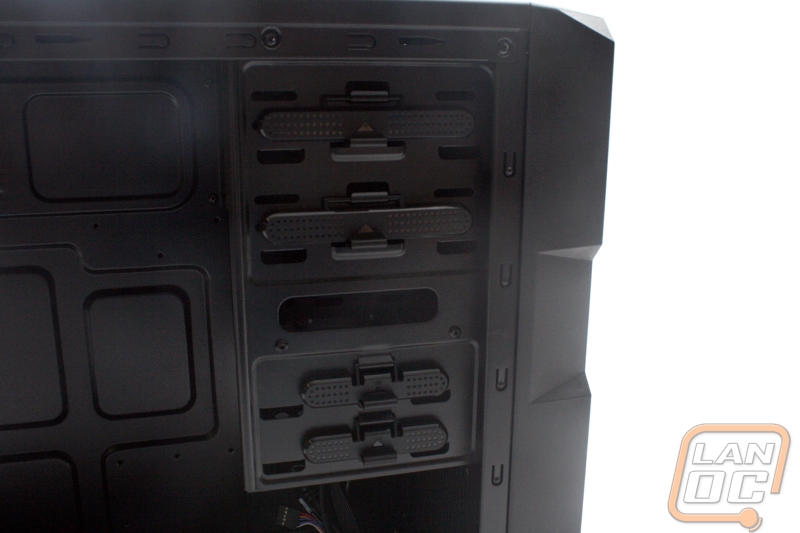
Revisiting the PCI area, the Spike has four slots available under the rear I/O cutout. This is a budget-friendly chassis, so the placeholders are the temporary bend-and-break fashion. Cougar makes up for it with a nice finished entire though. The rear exhaust fan has been relocated to the middle of the backplate, which is 120mm swappable for an 80.
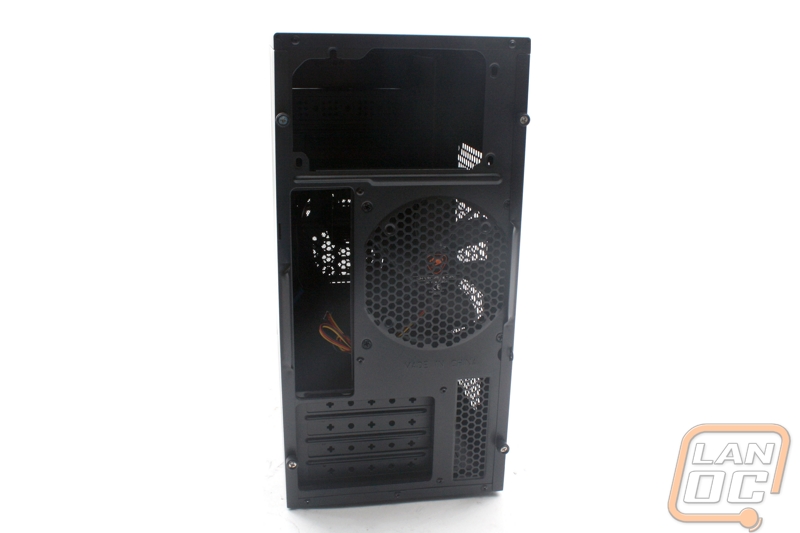
Other fan locations include a front option 80, 90, or 120mm fan, and two 120mm fan upgrades on the main compartment side panel to aid the airflow. Also worth noting is that the majority of cable management is likey to route through the cutout at the front quarter of the chassis, near the front intake fan. This creates a cooling system with a front and option side intake and rear exhaust completely reliant on the rear of the case, through the PSU exhaust and rear fan. Worth noting is that with the absence of any sort of grommets, the Spike isn't going to be very water cooling friendly.
